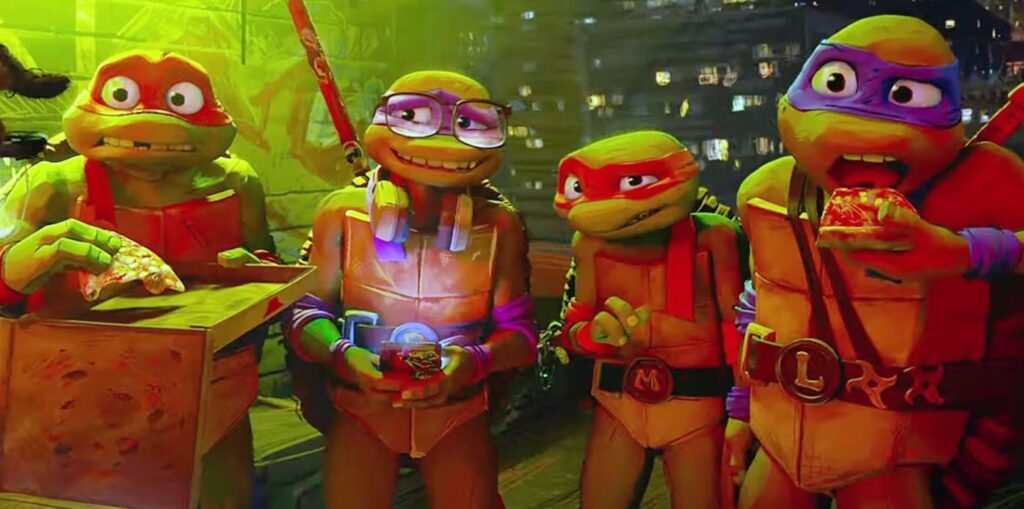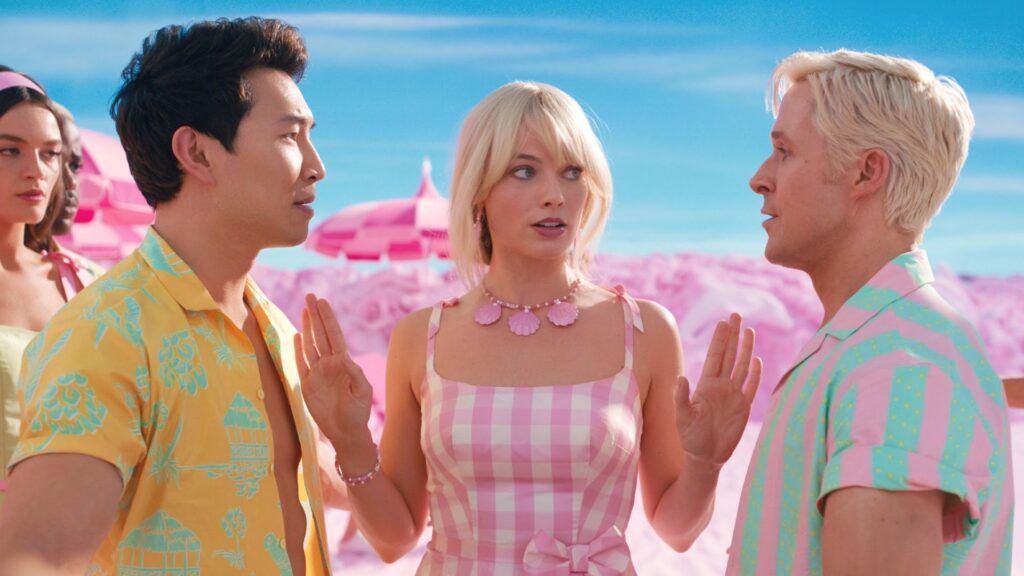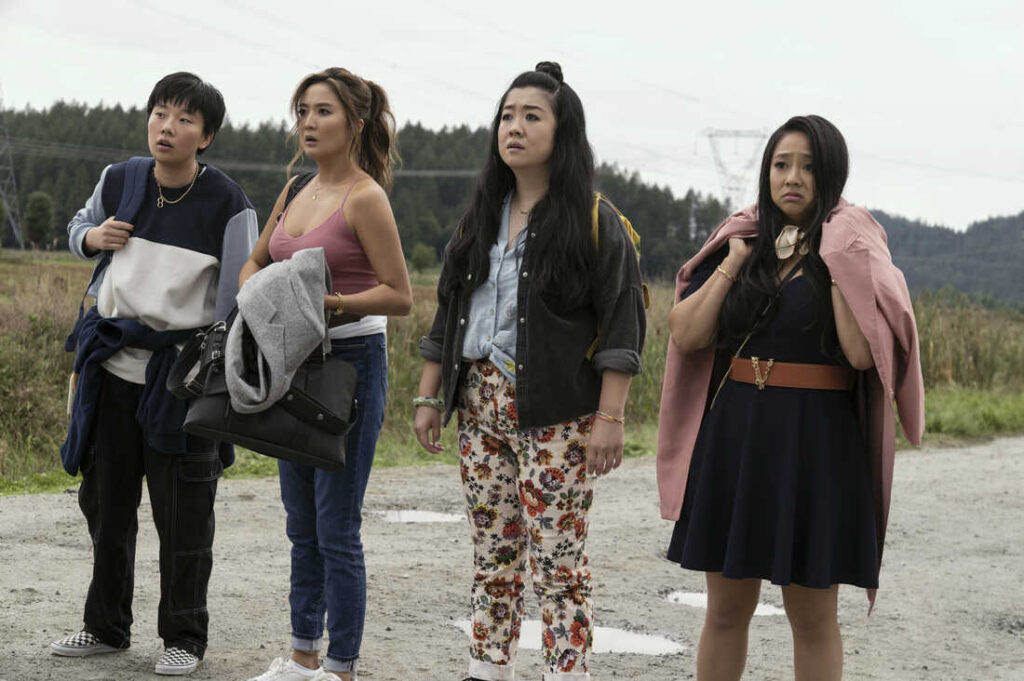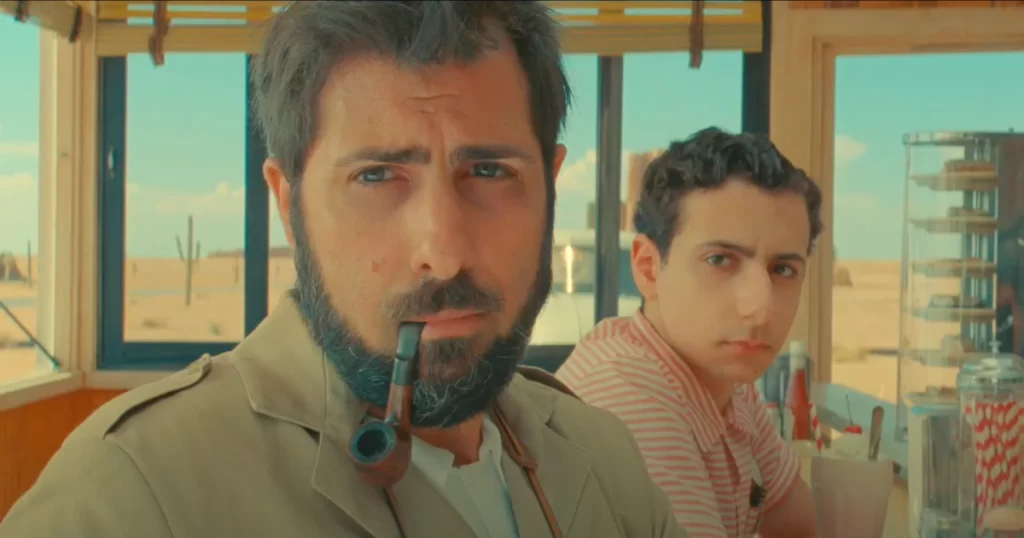Teenage Mutant Ninja Turtles: Mutant Mayhem: The Tortoises and the Flair

The success of the Spider-Verse pictures has ushered in a new style of animation that doesn’t yet have a name. Where the computerized creations of Pixar and its ilk exhibit hyper-realistic detail and punctilious precision, this burgeoning technique is playfully imperfect and openly fantastical. Rather than attempting to mimic the look of live-action cinema, it leans into its artifice, emphasizing its cartoonish quality through blurred edges, exaggerated features, and chaotic motion. The goal is to approximate the childhood experience of reading a comic book—not so much the literal sense of integrating thought bubbles and splash panels, but the more youthful wonderment of entering a world of obvious invention and boundless possibility.
Teenage Mutant Ninja Turtles: Mutant Mayhem is the latest entrant in this subgenre, and its aesthetic is successful insofar as it’s notable. The movie looks like… well, it looks like something. It’s nowhere near as cleverly designed or rapturously conceived as Across the Spider-Verse; its colors can be muddy, and its action sequences are generally incoherent. But it at least possesses a visual identity—a degree of pictorial flair—that distinguishes it from other animated productions aimed toward younger audiences. It has character. Read More




